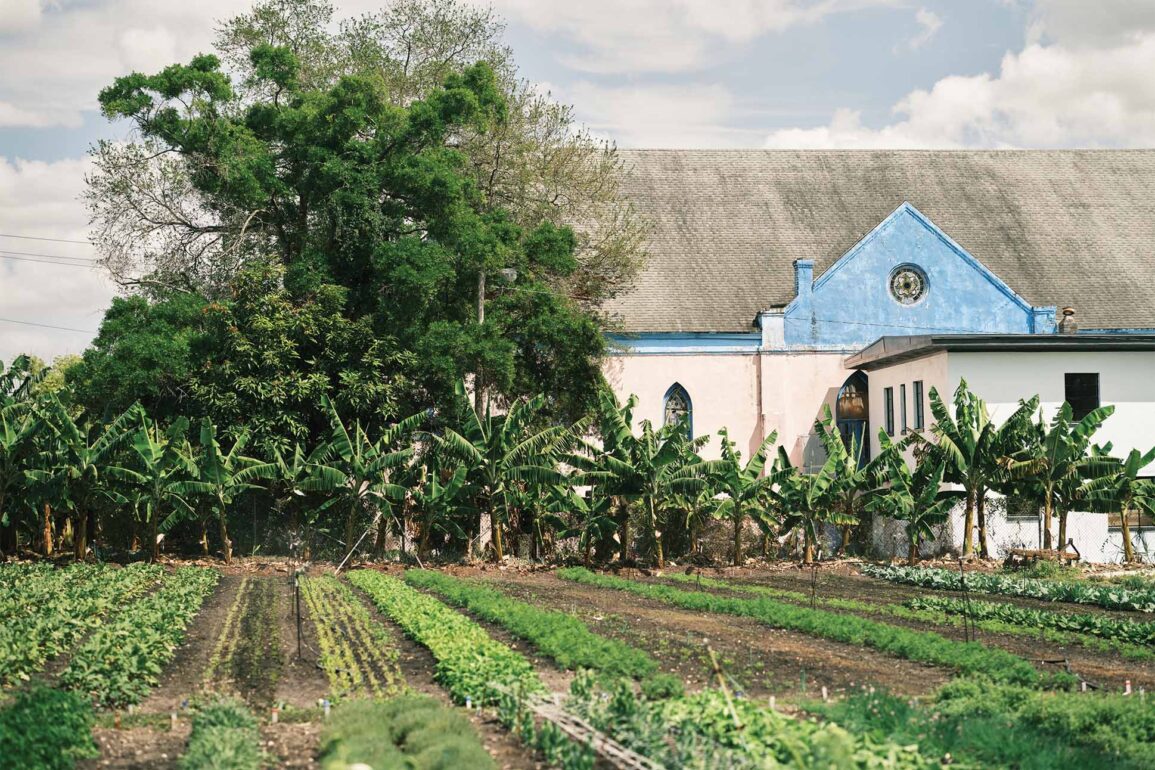By Janette Flavell
With regenerative roots and a lot of heart, Meacham Urban Farm invests not only in the land, but the community surrounding them via their two acre, green space just five minutes north of Water Street Tampa.
Their goal: to feed their community by connecting with local schools, giving nearby students of all ages the chance to practice hands-on agriculture. Together, the farm team and their student mentees learn how to prepare soil, plant seeds and grow food. The students get to see the process from inception and tend to seedlings all the way through to harvest. That allotment is stored for locals to purchase, both through the farm’s membership program and SNAP benefits.
This micro-ecosystem is a farm tucked away inside a concrete jungle. What some consider an unusual place for a farm, community members and local chefs revere. And with a wide range of organic produce to choose from (including fresh ferments), who could blame them? The truth about sowing and growing is that it’s a heart-centric experience–and it’s exactly what gets Joe Dalessio, one of the farmers on the land, and crew out of bed every morning.
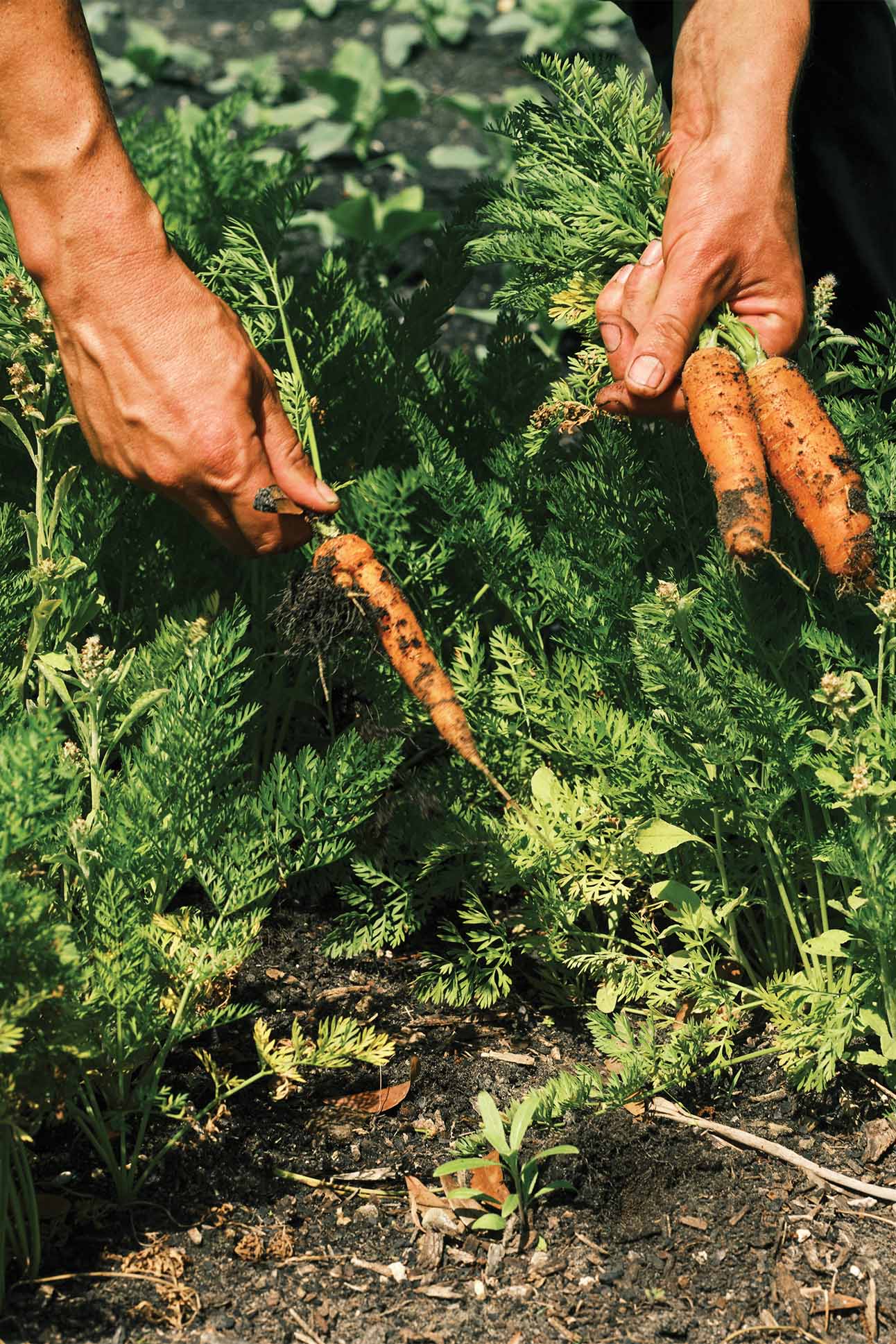
There’s an overwhelming sense of belonging at Meacham. The second your feet hit the soil, there’s an instant spark, a connection to the work at hand. You’re greeted by barn cats in training and sunshine dripping across dewy, vibrant beds of kale, beets and cabbage. It’s hard to not immediately feel at home, where of course, shoes are optional.
Sitting on two acres, this regenerative farm strives to put agriculture in the hands of the community. “It took two and a half years of permitting and planning,” Dalessio says with a smile. “Add a couple years of developing the foundation, and man, it feels so good to finally be farming,”.
The intention behind the design of the farm was simple: create an efficient, self-feeding, self-healing green machine. One that marries heavy production with traditional farming practices. “The hope is to invest in the land itself,” Dalessio says, and that’s exactly what they’ve managed to do. “We’re in that stage where we’re still bringing in organic fertilizer and compost. Producing that in house to become a closed loop system is what we’re most looking forward to.”
Healthy, nitrogen rich soil at Meacham now yields high quality crops-—but it didn’t start off that way.
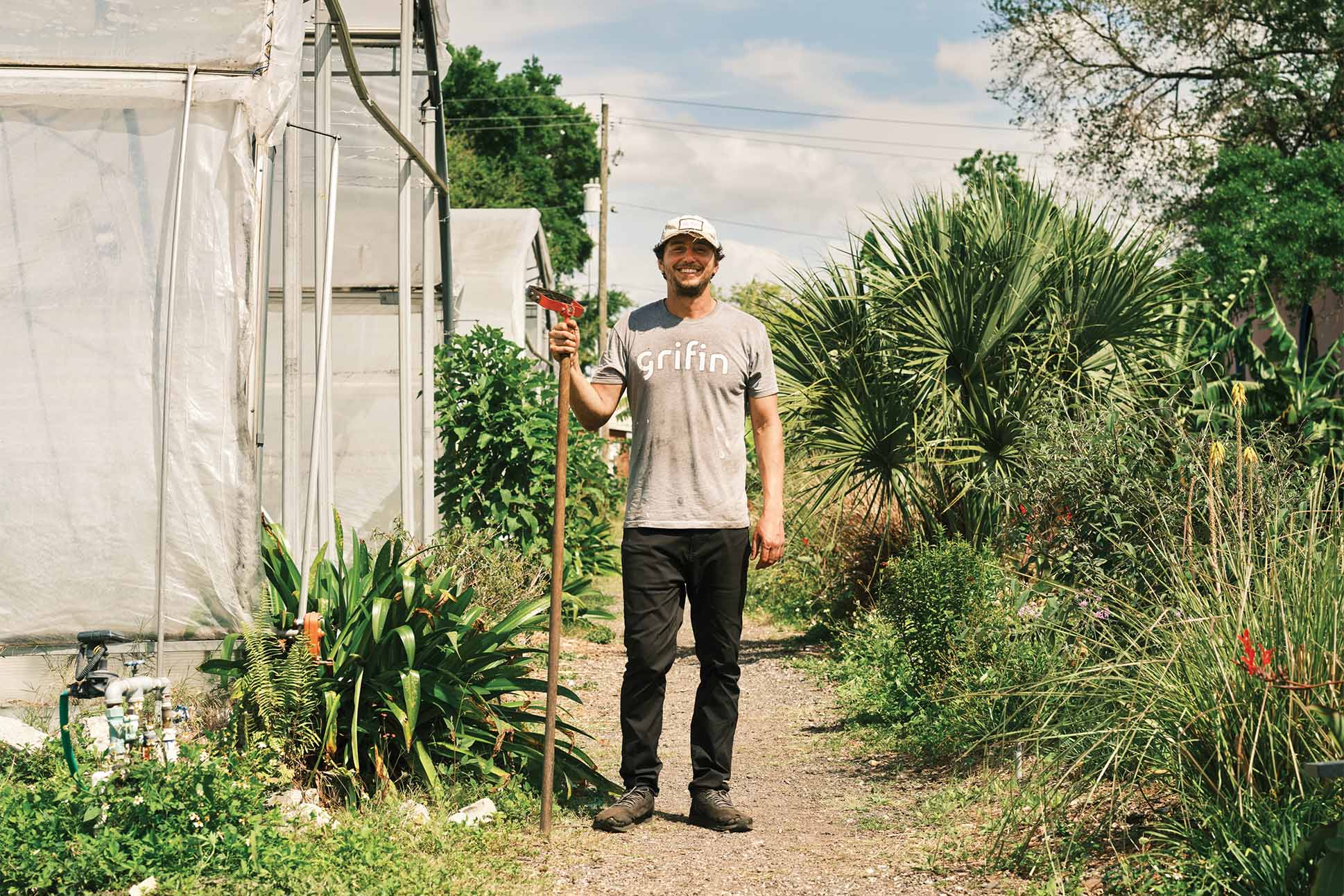
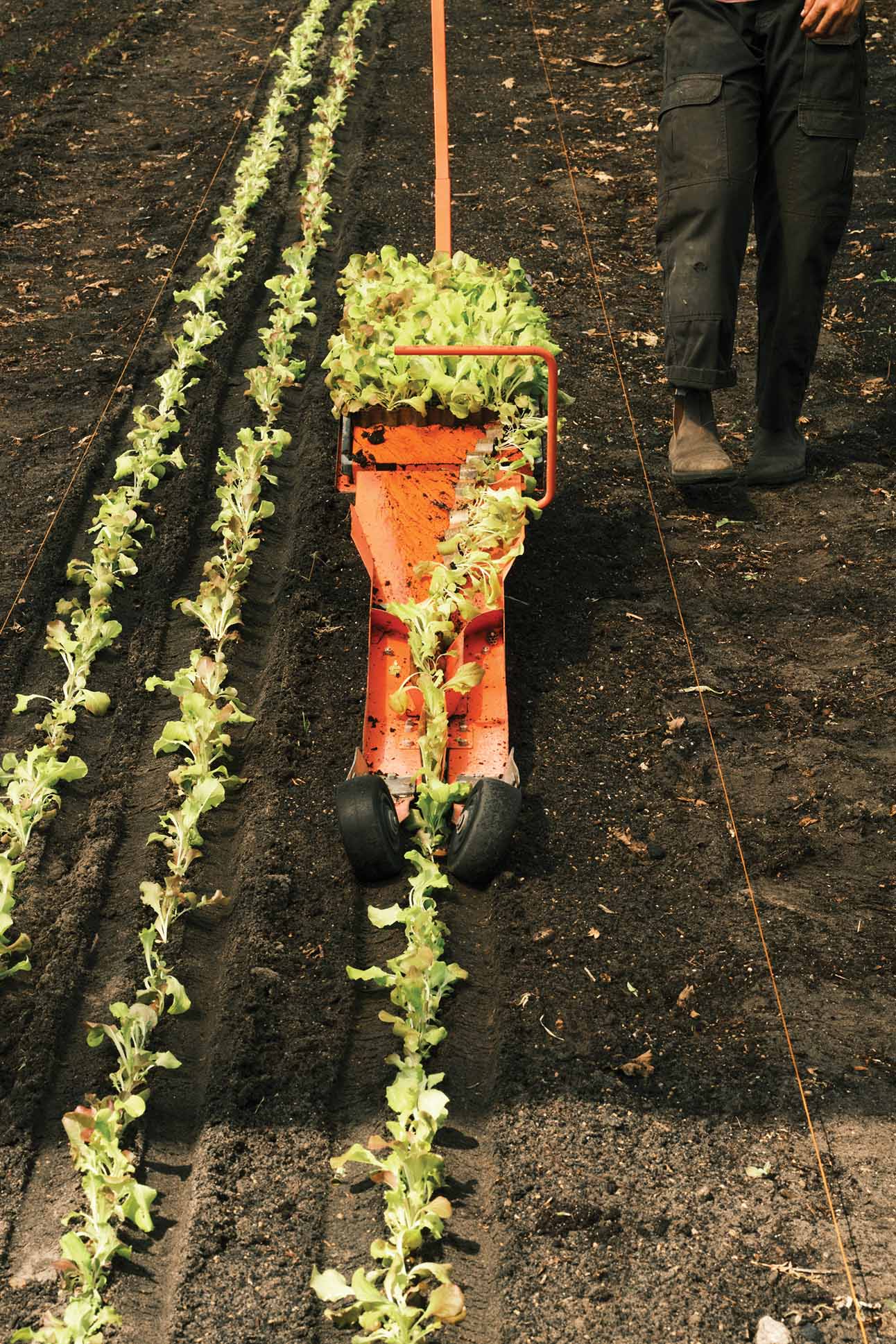
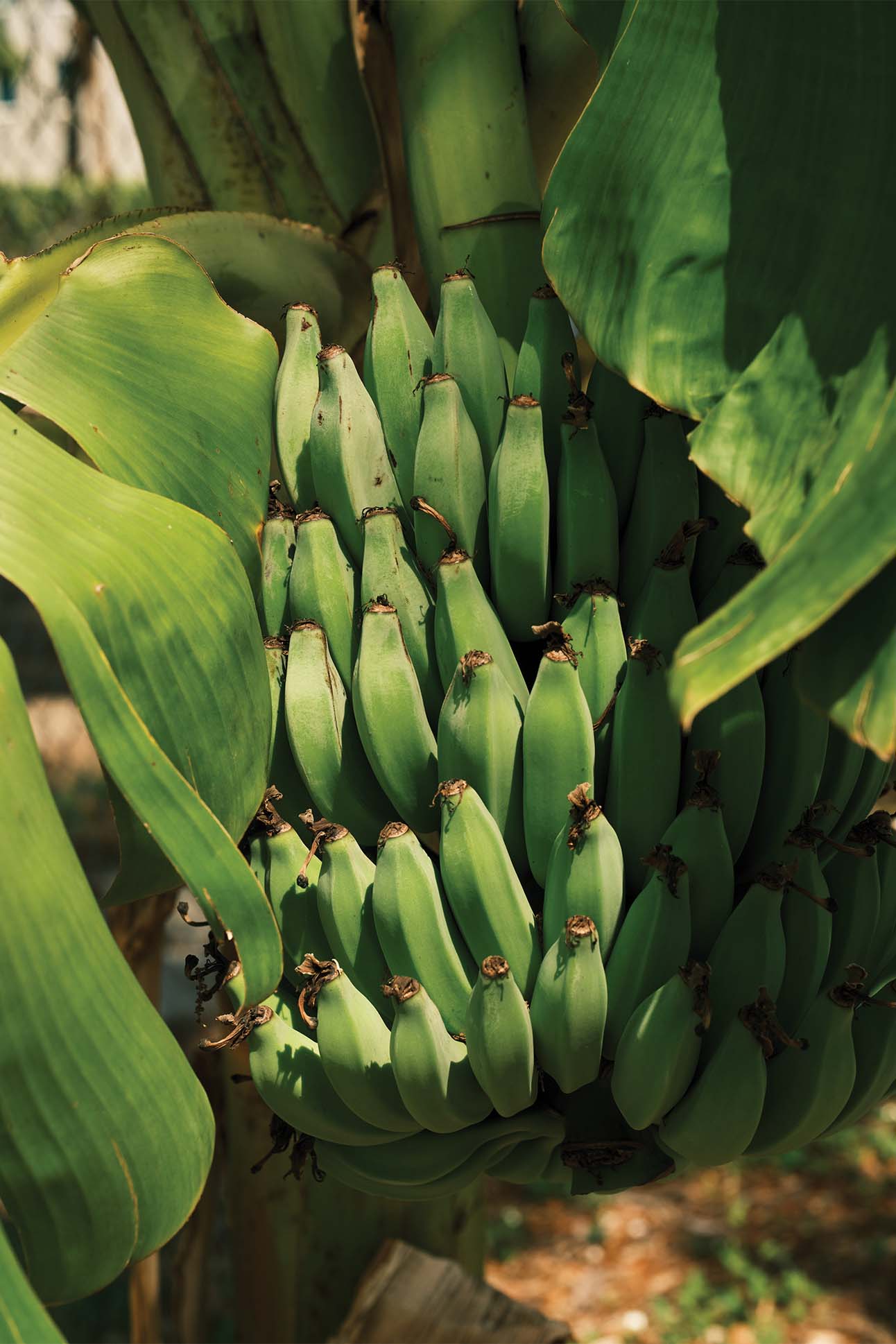

When the Meacham crew first arrived on the land it was desolate, save for a derelict building. The land was full of sandy dirt with nothing active happening below ground. Dalessio recalls he and his team walking square foot by square foot, excavating, removing trash and ditching rubble to prepare the surface for an overhaul.
Over time, they were able to develop a permanent bed system. This approach focuses their resources on a specific area to maximize their yield per square foot. As opposed to plowing or harrowing, permanent beds are developed and set in place to grow the same way, year after year. With the help of biological controls like ladybugs, lacewings and cover crops. Intentional row spacing helps restructure the approach many farmers have taken.
“This style of farming takes four or five years to really establish, so now that we’re able to grow food for the community, it feels like things are coming full circle,” says Dalessio. He, Nicole Kubilins, Travis Malloy and Stephen Fox are the main farmers here, each bringing with them years of experience between life in academia and straight up digging in the dirt.
Dalessio reminisces on growing up without access or exposure to living or working on the land. “I didn’t grow up on a farm,” he says. “And we know it’ll take a while to see how collaborating with the kids in the community will impact them in the long term. But the immediate response has been incredible.” There’s a swell of hope and excitement at this future glimpse. Dalessio muses that seeing the students and families adopting practices they’ve learned at Meacham is worth every second of working in the Florida heat.
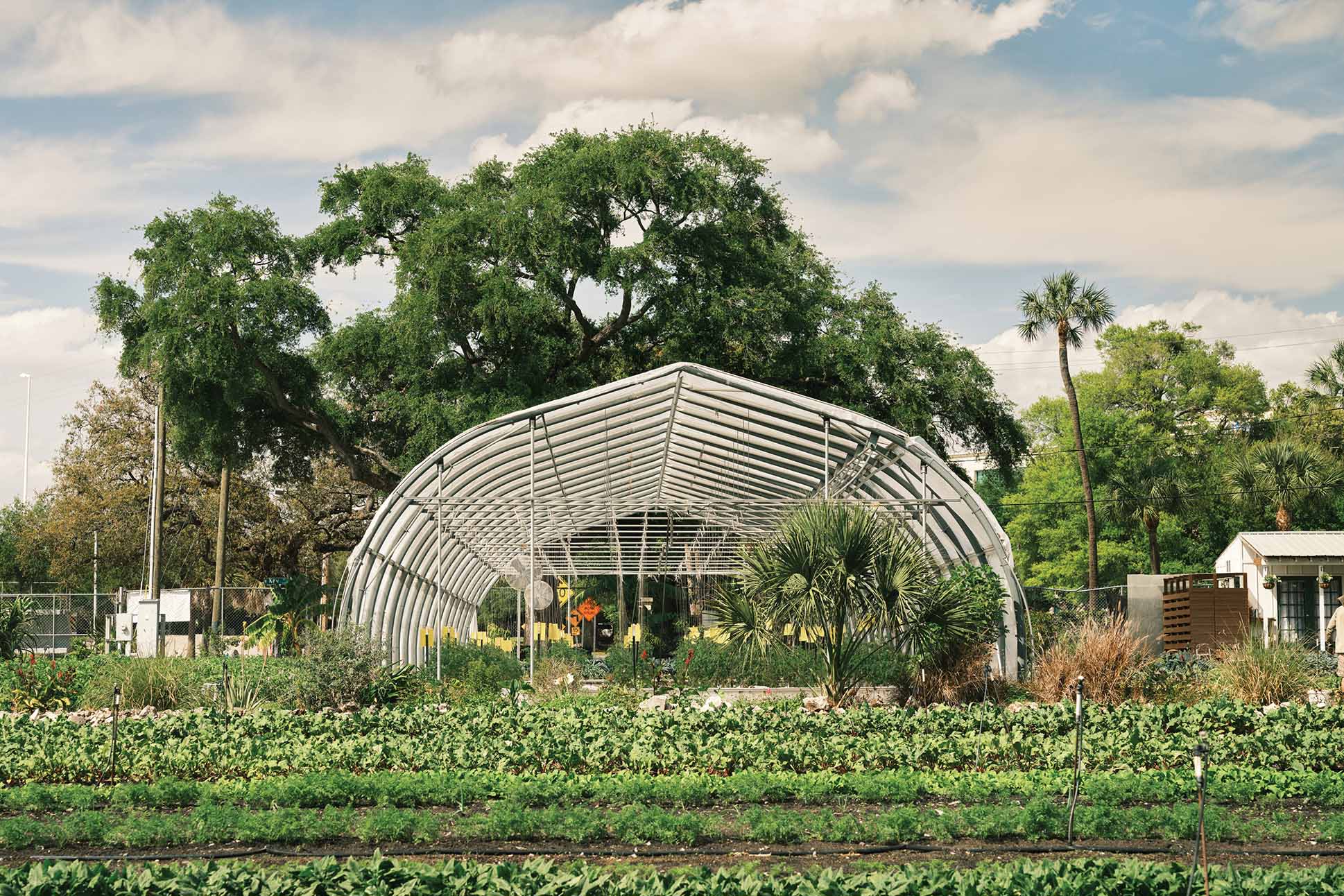
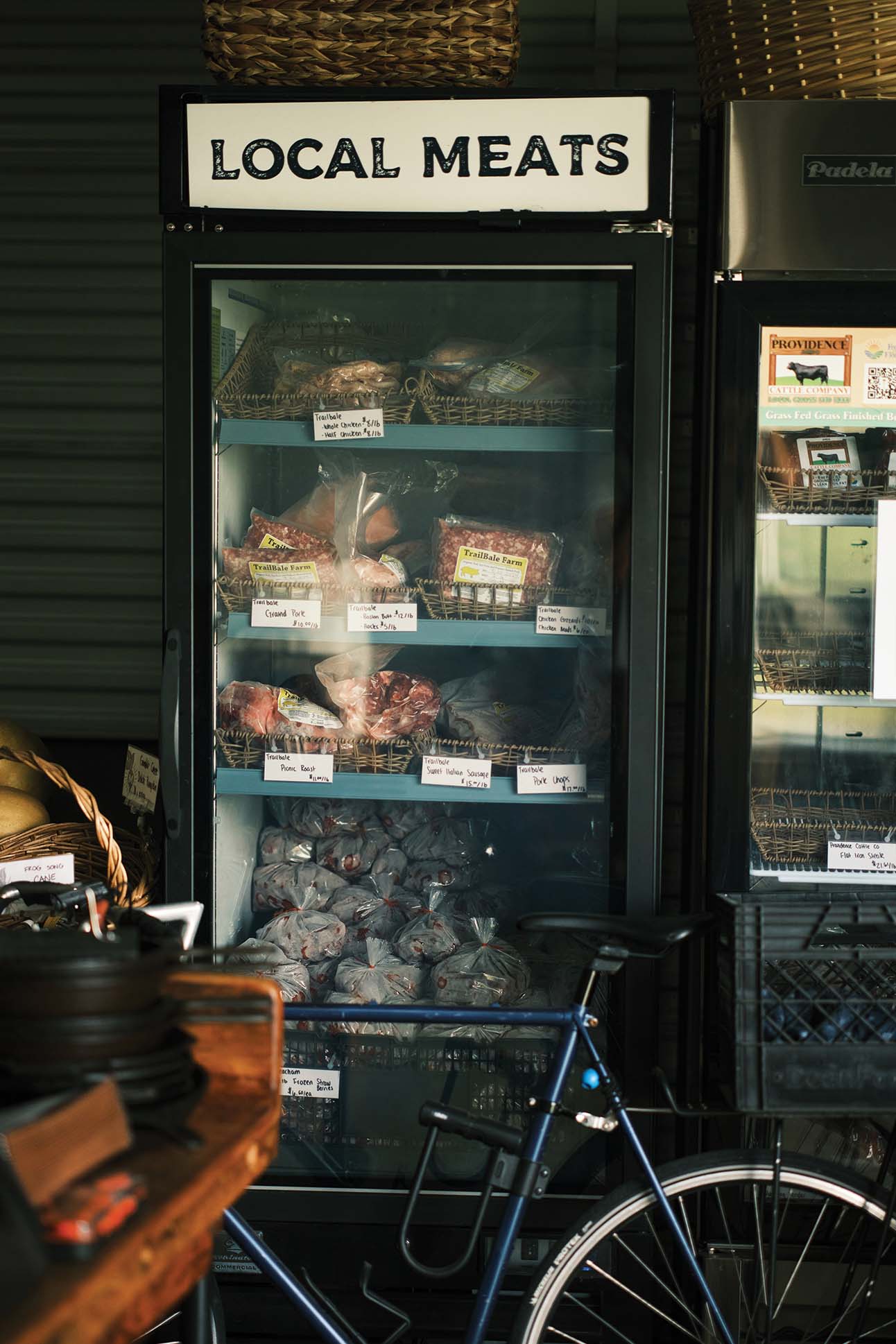
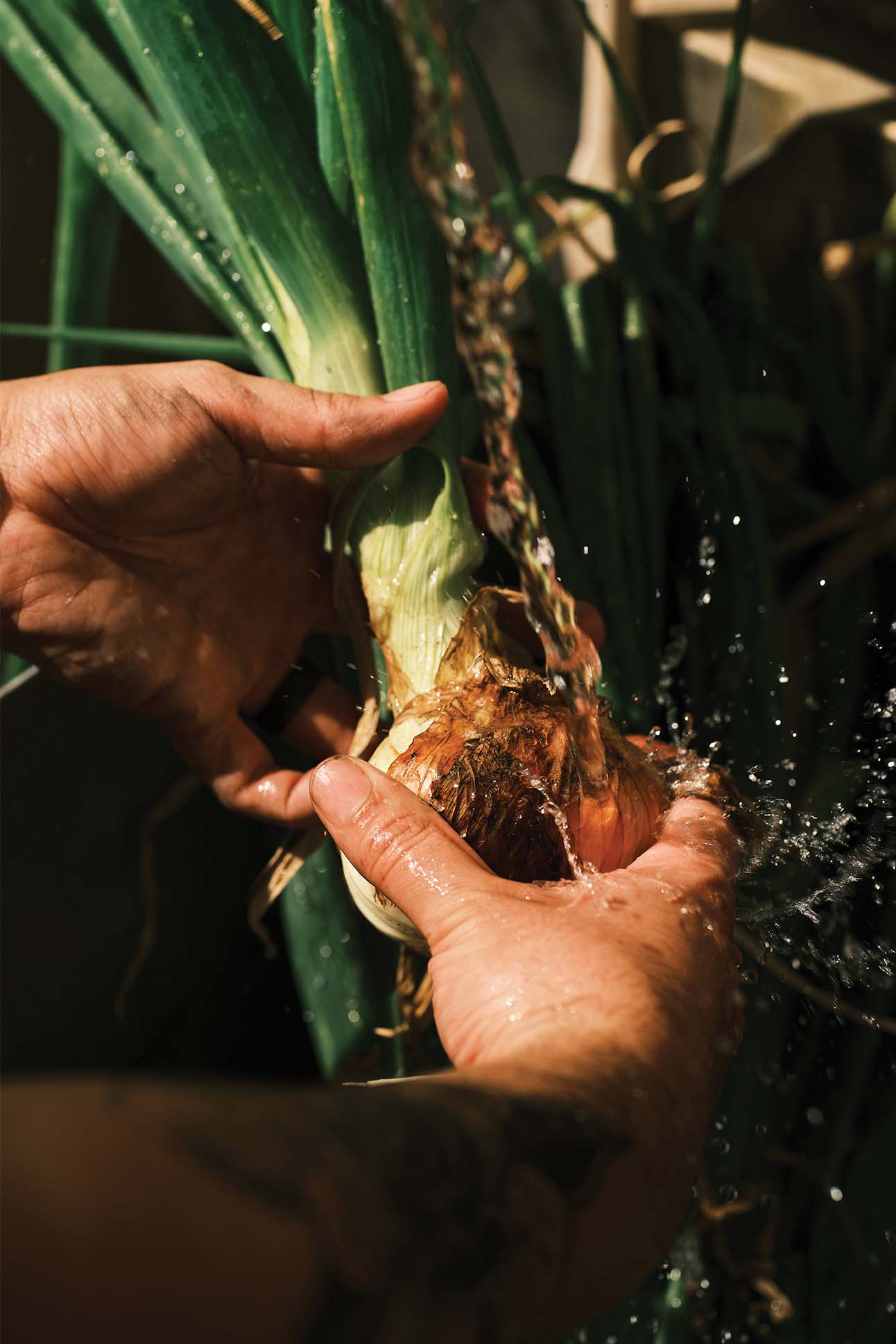
Throughout the year the farm hosts guest chef dinners which serve produce from Meacham and hyperlocal meat from regional farms.
We caught the crew in the middle of prepping for an upcoming farm dinner, one of many they host throughout the year. This seven-course, family style dinner highlights seasonal, raw, fermented, and cooked elements, all from local vendors, including the farm itself. At farm dinners, guests have a chance to tour the farm, harvest some vegetables and enjoy chatting with chefs and local purveyors. Among them is Shane Richeson, creator of Buddha’s Garden.
Richeson dedicates his time to the art of fermentation. Some of his popular creations include garlic black pepper kraut, hatch chile kimchi and zhoug Sauce with some of the fermented eats becoming a staple at the coveted dinners throughout the year. And with ingredients straight from the ground just footsteps from the fire, the seats at the table fill quickly.
Developed by the community and for the community, Meacham leads by example, aiming to reduce negative impacts on the climate while increasing accessibility to fresh grown foods and the education and practices behind growing them. To watch this crew integrate their passion and purpose borders on magical.
Will the city of Tampa follow in Meacham’s footsteps? We think so. The development of Water Street Tampa—whose LEED ND certification points to its focus on harmony with the native landscape, and foundational commitment to communal responsibility and environmental sustainability—is a good sign these pillars of sustainability are being adopted and adapted to. Though, one thing is certain. This urban farm exemplifies what it means to revel in nutrient dense, community care. And the greater Tampa Bay area can look forward to Meacham rooting wide and growing tall, with all hands in.


